Executive Summary:
The global private technology M&A market is showing some signs of recovery that were forecasted at the beginning of 2024, though the still harsh economic climate has shifted deal-making dynamics within the industry.
EV/EBITDA and EV/Revenue multiples have seen an increase in the first quarter of 2024, due to a more optimistic economic outlook. But sellers and buyers are still not easily agreeing on valuations, especially in deals that include more mature companies of VC funds and PE firms. In 2024, bridging valuation gaps will be one of the most important aspects of dealmaking.
In Q1’24, the US, Europe and Asia have seen a slight increase in the number of tech M&A deals. The acquisition rationale has shifted to strategic deals, driven by the need to uphold a strong position under volatile market dynamics. Furthermore, many companies, especially those involved in AI, have had to and will continue to need to, adopt different approaches to realizing post-merger synergies beyond just growth and cost synergies.
Aggregate deal value on private tech markets has increased in Q1’24, amounting to USD 398 Bn, which is driven by strategic acquisitions and a return of confidence for dealmakers to pursue larger deals. This increase can also be attributed to a rise in divestitures, as companies are adapting a more value-centric deal making approach.
The ICT sector is responsible for the majority of deals in the private tech M&A sector, where we are seeing that the amount of the purchase price that is being paid in stocks is steadily increasing.
Bridging valuation gaps in the face of rising multiples
Private valuation multiples within the technology sector have been on an upward trajectory since 2023. Although both EBITDA and Revenue multiples experienced declines in 2023, they have witnessed a significant surge in the first quarter of 2024.
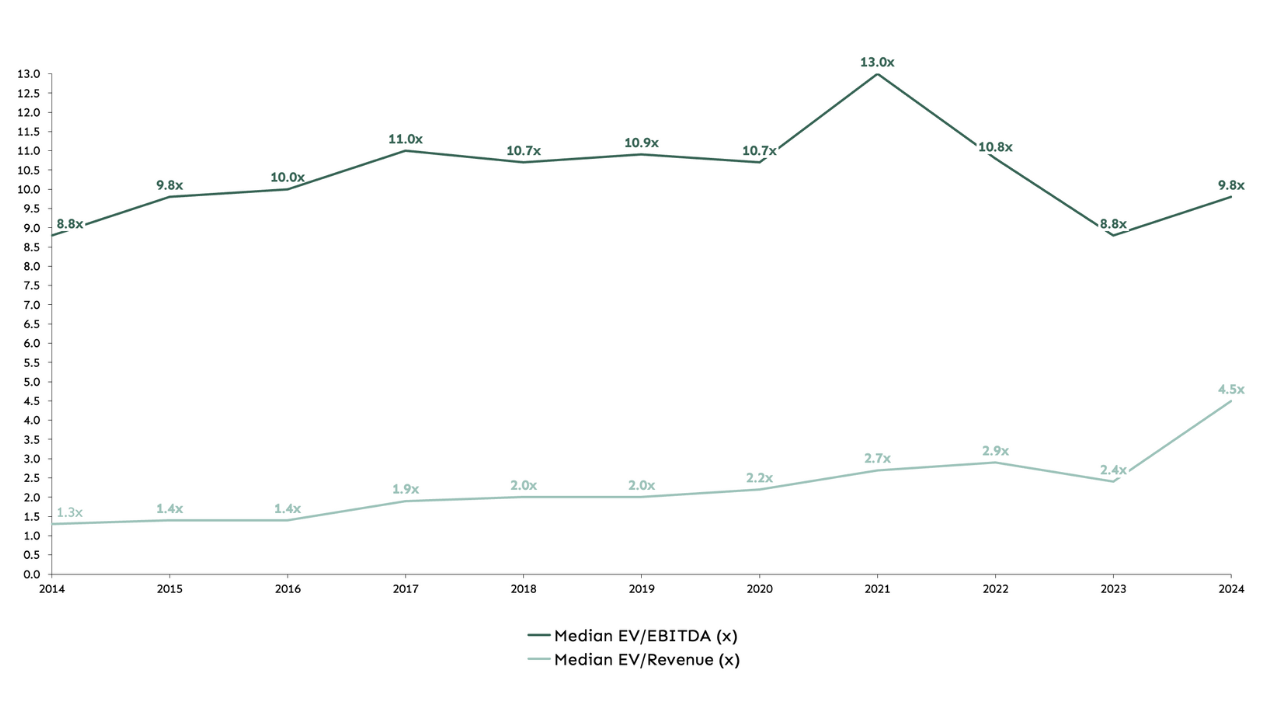
Source: Preqin May 2024
This improvement in valuation multiples can be attributed to a more optimistic economic outlook, coupled with the anticipation of interest rate reductions. However, it’s worth noting that in the United States, the Federal Reserve has revised its projections, and as of now, interest rate cuts are only anticipated towards the end of the year.
A trend we’ve been noticing is the valuation gap in deals between PE and VC firms. Due to the scarcity of IPOs, VC firms are facing liquidity problems. Private equity companies are stepping in to address this issue by acquiring larger companies from the VC funds portfolios. These more mature companies have outgrown the typical trajectory of a venture-backed startup and are now in need of a different kind of investment and management approach. The issue with those deals is the misalignment in valuation approaches. In VC, companies are normally valued based on future revenue growth, whereas PE tends to prioritize current profitability and cash flow generation. Generally speaking, there is still a divide between the price that buyers are willing to pay and what sellers want for their business, which is why 2024 will be the year where one of the biggest aspects to consider about dealmaking is bridging valuation gaps.
The increase in strategic acquisitions and a shifting approach to creating synnergies
Compared to a significant year-over-year decrease observed from Q1 2022 to Q1 2023, there has been a modest uptick in deal counts across the US, Europe, and Asia.
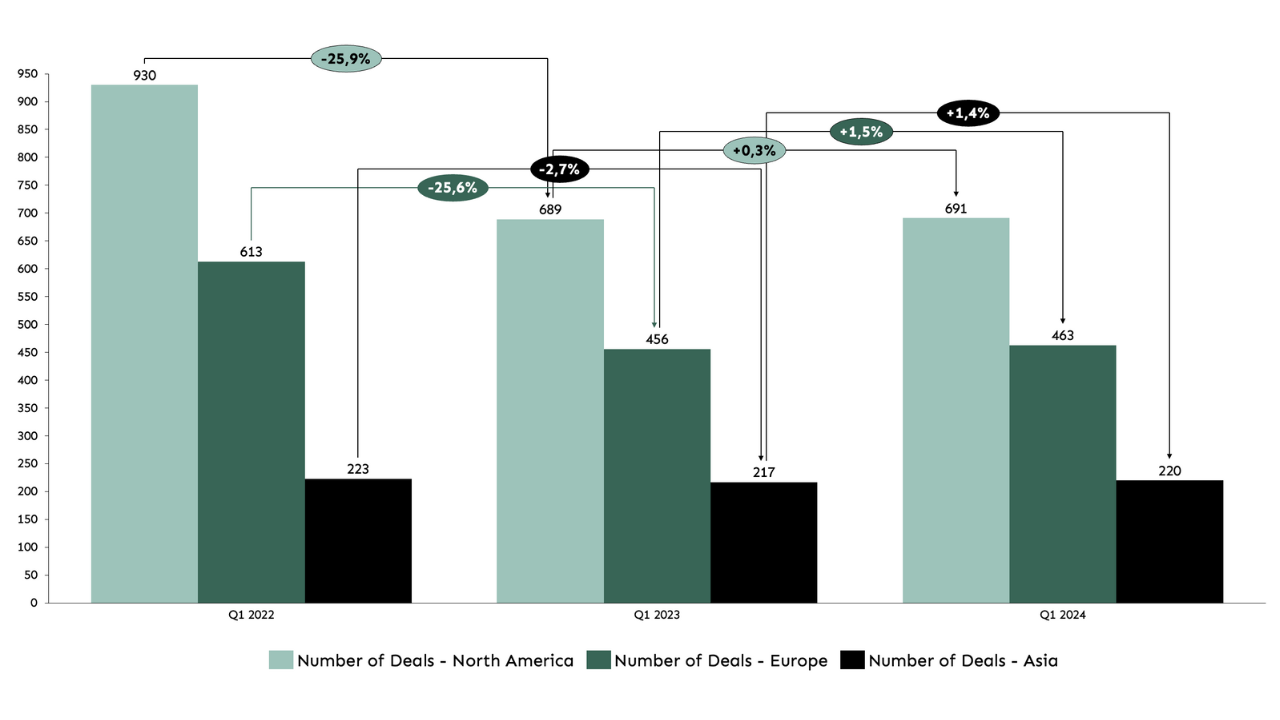
Source: Preqin May 2024
Market uncertainty, lingering from the previous year’s conditions, emerged as a pivotal catalyst for M&A activity. This uncertainty prompted corporations to reassess their investment strategies, showcasing the significance of strategic M&A endeavors to strengthen their positions under volatile market dynamics. Strategic acquirers have traditionally led activity in the tech sector, but last year they were barely ahead of financial acquirers in terms of the amount spent on transactions. This has changed in the recent quarter, and strategic deals are expected to continually rise this year.
Highlighting strategically relevant verticals, the demand for tech companies to stay competitive and offer the product portfolios expected by clients and customers in today’s rapidly evolving landscape is driving a necessity for strategic acquisitions centered around AI. But in order for deals to be successful, in general, growth and cost synergies alone don’t suffice anymore. This holds especially true with AI acquisitions because multiples are higher, the technology is comparatively unproven, and the value stems from integrating data sets and transforming products or services to seize fresh opportunities for differentiation. Dealmakers now need to devote substantial energy to the longest of all synergy drivers, which is product integration. This entails strategically consolidating offerings, crafting unique customer value propositions, and establishing integrated platforms to, in turn, foster long-term revenue synergies.
Dealmakers are getting more confident and high borrowing costs are promoting divestitures
The first quarter of 2024 marked a substantial surge in the global private tech M&A market in terms of deal value. Aggregate deal value soared to USD 398 Bn, showcasing a remarkable increase compared to Q1 2023. The impressive 118.7% increase in deal volume, bolstered by large M&A transactions that have experienced a comeback, signals a resurgence of health in the market and a newfound confidence among boardrooms for pursuing larger deals.
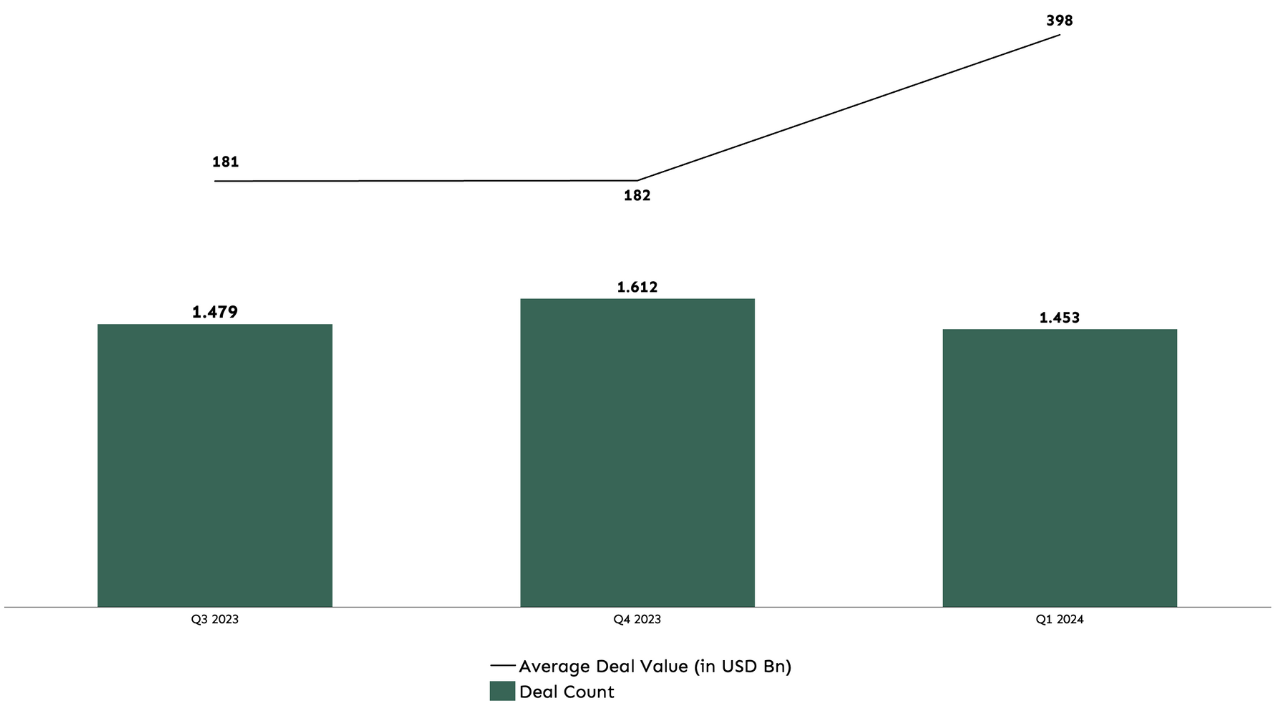
Source: Preqin May 2024
Another emerging trend we’ve noticed is the uptick in divestitures, a pattern that persisted through 2023. In preceding years, financial sponsors prioritized growth over value when looking for acquisition targets. However, with borrowing costs skyrocketing and valuations yet to fully stabilize, private equity firms have shifted towards a more value-centric approach. This shift has led to a heightened focus on divestitures within the realm of all deals, thereby contributing to increased deal volumes in Q1 2024.
While global deal counts have declined compared to the previous quarter, they have shown resilience when compared with Q1 2023 figures, with a 1.0% increase in deal count and a 118.7% surge in deal value.
Technology deals are back on top in private markets
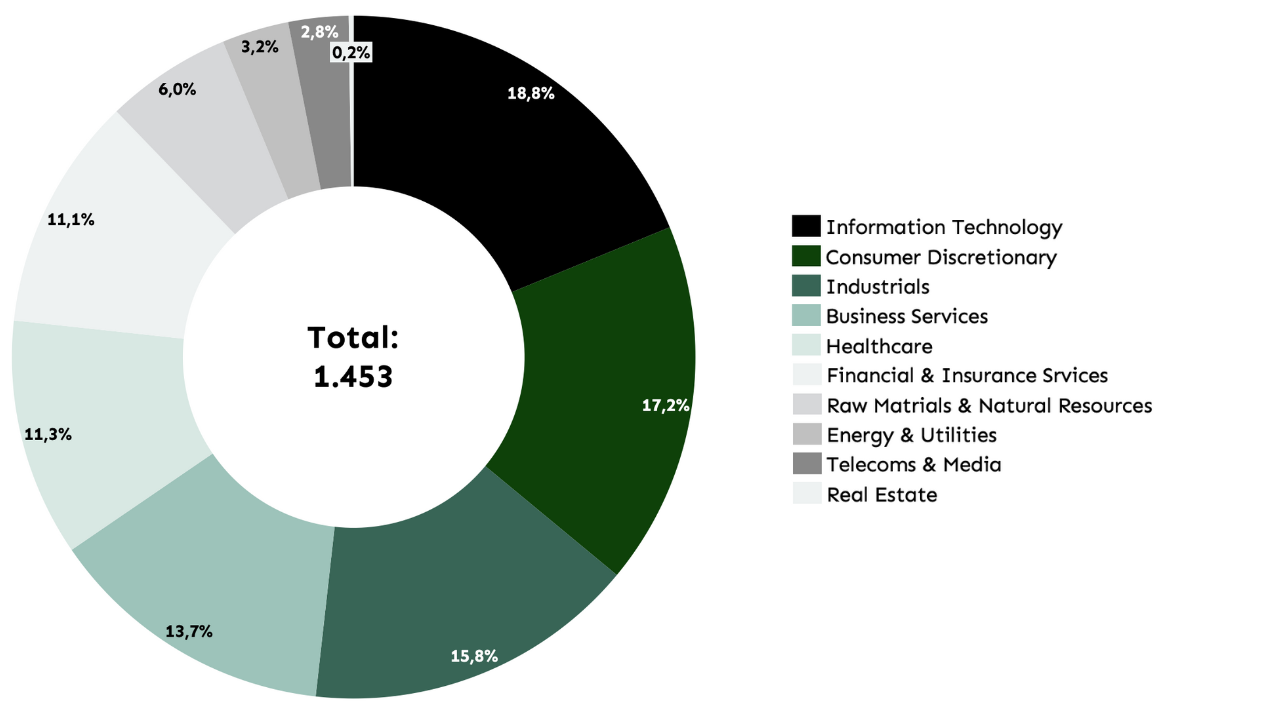
Source: Preqin May 2024
Transaction Highlights
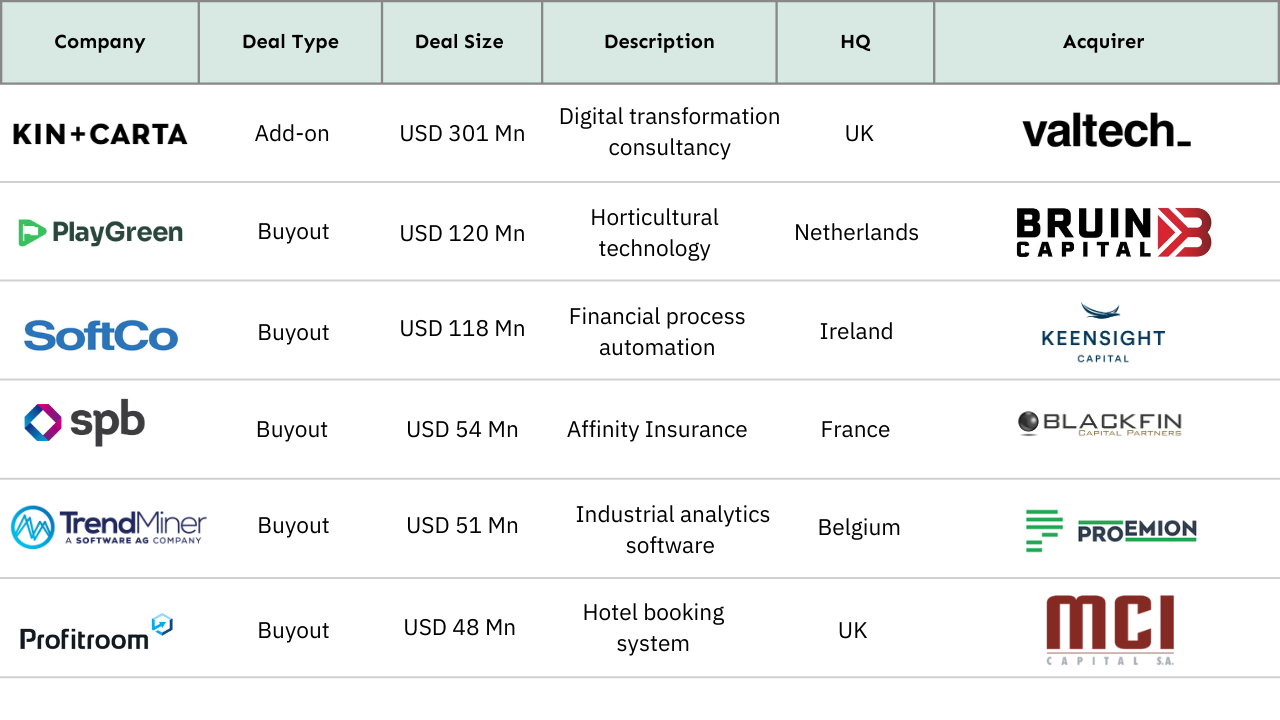
Did you know that we started publishing on Medium? Make sure to check it out here.
